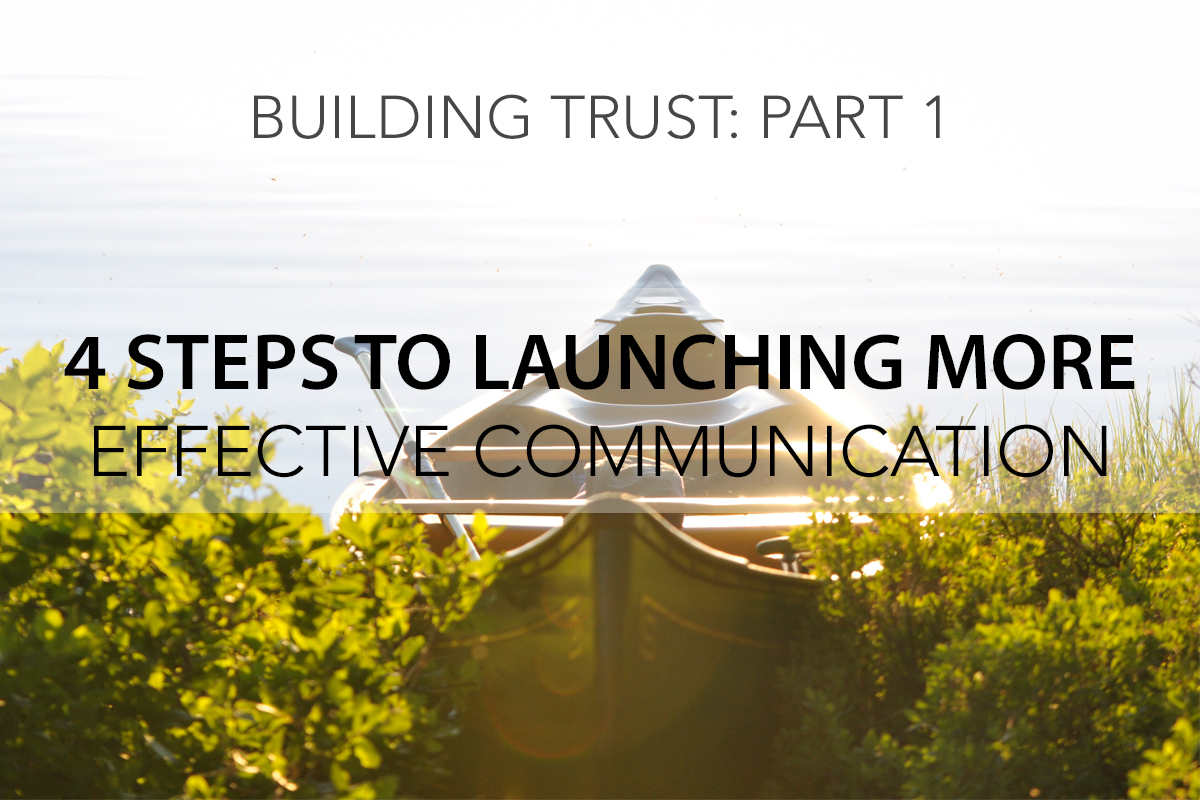In today’s organizations, a variety of buzz words and themes are circulating such as: teamwork, vision casting, mentoring, change management, and empowerment. Each of these roles and related tasks are dependent upon trust. With a low trust culture, it will be difficult or impossible to successfully accomplish any one of these, since each is heavily dependent upon trust and trustworthiness.
Read moreWhat Is Causing Your Conflict?
Unresolved conflict in the workplace is expensive on many fronts. However, conflict can be a critically important component in the formation of high-functioning teams. The key is knowing how to allow the right amount and the right kind of conflict into the system without letting it escalate into a damaging dispute. To do this, we must understand the different root causes of conflict. Which of the following 7 points is the root cause of your conflict?
Read moreBuilding Trust Part 6: Consistency
People tend to trust people who show predictability or consistency. When someone is erratic or unpredictable, we are less likely to trust him or her. For example, if a supervisor is friendly and joking around one day, then the next day is angry and withdrawn, and another day is serious and reserved, people will develop a sense of uncertainty about this leader and begin to question their consistency.
Read moreBuilding Trust Part 5: Connectedness
Relationships play a vital role in building and maintaining trust. When people are relationally connected to one another, they have a greater opportunity to know what is happening in the lives of others, to manifest care and concern when needs are discovered, and to keep potential for conflict and misunderstanding to a minimum.
Read moreBuilding Trust Part 3: Concern
People tend to have confidence and trust in those who they perceive show authentic concern for them. In Philippians 2, Paul explains how we should imitate Christ in our actions and attitudes, including demonstrating concern for others.
Read moreBuilding Trust Part 2: Character
Character refers to a person’s intrinsic value system and external actions. Areas often associated with character are honesty, fairness, and hard work. Character is the second value we are focusing on to build trust because the way others perceive your character will effect how much they trust you. Below are four ways to help you form good character and earn the trust and respect of those around you.
Read moreBuilding Trust Part 1: Communication
The 6 Trust Gauges to the right graphically describe how trust works among people and in organizations. All people have expectations of themselves and others, but they may not be understood, agreed upon, or fair. These expectations fall into one or more of the following categories: communication, character, concern, competence, connectedness, and consistency. Trust is built when we prove reliable by meeting the expectations others have of us in these six areas.
Read more10 Steps to Rebuild Broken Trust
When trust is broken, either for reasons of unethical behavior or due to differing expectations, the results are disappointment, hurt, and anger. It is very easy to respond by not wanting to trust again or invest the time and energy necessary to rebuild the lost trust. However, this only results in embedding unhealthy feelings and behaviors into the organization’s culture. To get your organization healthy again, it's important to begin rebuilding trust as soon as possible. Easier said then done. Here are 10 steps to get you started.
Read more5 Things Your Boss Needs from You
If expectations aren't clear, sometimes it is really hard to know what your boss wants. But even if your leader is a great communicator, there are still some unspoken things that he/she expects from you.
Read more7 Key Factors to Keeping Your Credibility Bank Full
Bankruptcy. It’s a sad trend in today's’ culture, and it is growing at an alarming rate. We usually equate it with financial failure, but there are other types of bankruptcy. Financial fortune can be reversed, but once our credibility has been lost, it becomes difficult, if not impossible, to regain.
Read more3 Ways to Not Get Burnt by Expectations
All people have expectations of themselves and others. The expectations that are held may not be understood, agreed upon, or even fair.
These expectations fall into one or more of the following six categories: communication, character, concern, competence, connectedness, and consistency. Trust is built when we prove reliable by meeting the expectations others have of us in these six areas, but we can't gain someone's trust if we don't know what they expect. It's a viscous cycle.
Read moreThreats or Affirmation?
Threat of significant consequences for not meeting requested performance standards is all too often the primary motivator used by leaders.
Read more












